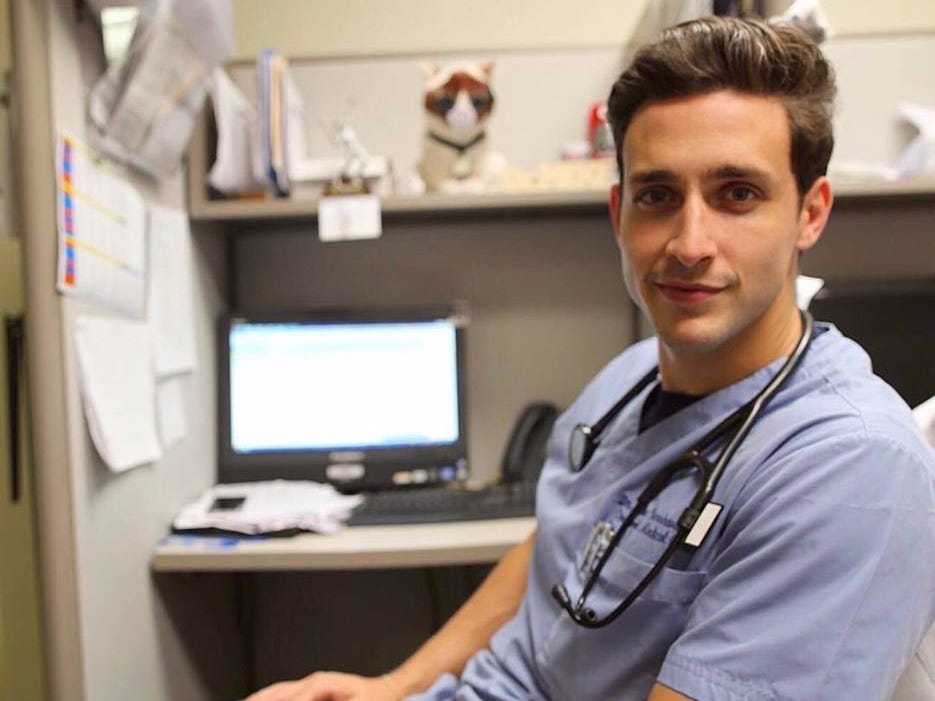
The journey in medicine is a journey of goal setting. Doctors set goals all the time. We set the goal to become a doctor then strive to achieve it. Once we decide the chosen specialty, we set the goal for the residency training program we hope to match into, and we strive to achieve that. Match Day can be a day of great celebration for some, while it’s a time of great anxiety and disappointment for others. Then we set our sights on our desired attending position and strive for that.
Life becomes a series of goals that doctors strive to achieve. And in the process of striving to achieve the next goal, we miss the beauty, the power, and the blessings that are in the present moment. We are blind to the people, the experiences, and the opportunities in the present moment that are readily available to support us.
Instead, we plan, implement, wait, and expect that the life and career we want will materialize when we achieve that next goal.
This cycle of delayed gratification and sacrifice makes life in medicine a challenging waiting game. Happiness feels like it’s just beyond our reach. We can’t relax just yet because there is another milestone to achieve. Medical school didn’t teach us how to appreciate where we are right now. We did not learn there is satisfaction to be had in making progress along the way. Instead, we are looking for what’s next.
Fellowship?
Attending position?
Academic appointment?
There is absolutely nothing wrong with ambition and wanting to move to the next level in medicine. But when the primary focus is on the next achievement and then the one after that, stress and overwhelm move in. We are never satisfied with where we are today. We miss the joy in patient care and the sense of community that comes with collaboration with colleagues.
The present moment is the only place where power lies. In the present moment, you celebrate yourself and all you’ve accomplished. When you embrace the present moment, you discover a new sense of clarity and renew your commitment to those aspects of life that are also important: family, friends, leisure time, and spirituality. You begin to realize you don’t have to do this alone. You can have support when the days are long, the acuity is high, and the waiting room is packed with patients waiting to see you.
When you understand the value of the present moment, times of stress, frustration, and overwhelm, don’t rock your confidence as much because you understand that it’s only for a time. You can learn to shift your energy at the moment toward what you desire instead.
Putting it in practice: In the present moment your confidence lives
I’m often asked what a doctor can do to build confidence. There is no magic formula for confidence building. Confidence comes from within. The task is to remove the clutter blocking it. It is not something that’s revealed once you achieve another milestone. It is available now.
It’s in knowing that in this present moment, you have access to what you need to be successful. Then take the action steps, whether that’s reading more to increase your knowledge base, or volunteering to assist with a procedure to hone your skillset, or learning how to more effectively engage with patients and the team, so your confidence shines.
Confidence is revealed when you:
- Clarify the positive impact you make in a patient’s life. It’s not always about having the diagnosis and answers at your fingertips. It may mean supporting your patient as he or she shares their biggest concerns and providing reassurance that you will be with them along the way.
- Appreciate your area of expertise in medicine and confidently seek support from the specialist the patient needs.
- Release the judgment and negative talk about why medicine is broken and focus on the solutions available for your team, staff, or unit.
- Emerge as a leader exactly where you are, whether it’s as a med student learning from the resident, a resident teaching the patient, family, and team, or an attending physician leading with care and compassion.
- Strategize ways for self-care and support both professionally and personally to avoid the despair of isolation.
Stephanie Wellington is a physician and can be reached at Nurturing MDs.




More Stories
The Future of Radiology Information System
How To Buy EHR Software in 6 Steps
Information security guide for small healthcare businesses